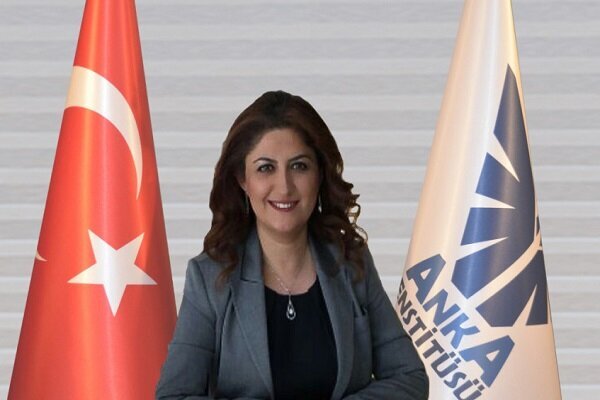Iran has tactically successfully managed the negotiation process.
In recent days, indirect talks between Iranian and American delegations in Muscat, the capital of Oman, have attracted the attention of the international community. These talks, which have taken the form of nuclear talks and aimed at reducing tensions and lifting sanctions, indicate Iran’s upper hand, as Iran has firmly stated that it is not willing to hold direct talks and emphasizes that all talks must take place within the framework of its nuclear program. According to international experts, this approach indicates Iran’s strong position against the United States.
The Turkish (Istanbul) section of Mehr News Agency conducted a conversation with Dr. Yashim Demir, an expert in international relations, to examine the results of these talks. The details of this conversation are as follows:
Given that the talks held last Saturday were positively evaluated by both Iranian and American sides, can we expect the next rounds of talks to be fruitful? Iranian sources emphasize that Iran will never accept abandoning or stopping its uranium enrichment program. Based on these views, what is the main challenge in the negotiation process between the two countries?
Regarding the negotiations held in Oman, which are the first in-person meetings since Barack Obama took office, both Iran and the United States have stated that the talks on the nuclear program have been constructive and effective. This can be seen as a positive sign for the future of the negotiation process. However, the fruitfulness of the next rounds of negotiations depends on the readiness of the parties to talk on equal terms and accept mutual demands. The main challenge in this process is Iran’s unwillingness to abandon its uranium enrichment program in contrast to the US insistence on a complete halt to this program. The US wants to limit Iran’s nuclear capacity and has kept the possibility of military action on the table if it fails to do so.
On the other hand, Iran emphasizes that its nuclear activities are solely for peaceful purposes and energy production and will not give up its right to enrich uranium. Therefore, the key question is whether the two sides can reach an understanding on the nuclear issue. Meanwhile, the climate of distrust created after the US unilateral withdrawal from the JCPOA in 2018 by the Donald Trump administration has negatively affected the negotiations. The domestic political pressures that the Trump administration would have faced if there was no agreement further complicated the negotiations.
From Iran’s perspective, the economic crisis and the heavy pressure of sanctions, along with the weakening of its regional position after the fall of the Assad government in Syria, have led Tehran to adopt a cautious and strategic approach to the negotiations. The possibility of using these factors as a tool of pressure is another serious obstacle to the negotiations. Ultimately, the two sides should seek long-term stability and cooperation rather than focusing on short-term gains. Iran should not simply seek the lifting of sanctions or the prevention of military threats from the US and Israel, and the US should also avoid using military threats as a bargaining tool. Coming to the negotiating table with threatening language will be a serious obstacle to the progress of the talks. Therefore, for the talks to be successful, both countries must take realistic steps based on maintaining regional peace and improving bilateral relations.
There are two important points in the talks; first, these talks are being held indirectly at Iran’s request; second, the talks will continue solely within the framework of the Iranian nuclear issue. Many experts assess Iran’s fulfillment of these two demands as Tehran gaining the upper hand in these talks. What is your opinion on this?
Negotiation is a process based on problem-solving and collective will. In cases with threatening elements between the parties, indirect negotiations are usually preferred instead of direct negotiations. Indirect negotiations can help create a more flexible and conducive atmosphere for solving the parties.
There is historical tension between Iran and the United States. Therefore, from Iran’s perspective, conducting direct negotiations may be seen as concessions and may provoke social or political reactions. Despite the current difficult economic conditions, Iran has managed to present a conciliatory image by adopting a position of resistance towards the United States and at the same time constructive towards Western countries. This has led to the public interpretation that Iran has gained the upper hand in the negotiations. It can be said that Iran has managed the negotiation process tactically successfully. However, US sanctions remain in place and the fundamental issues between the parties have not yet reached a lasting solution.

